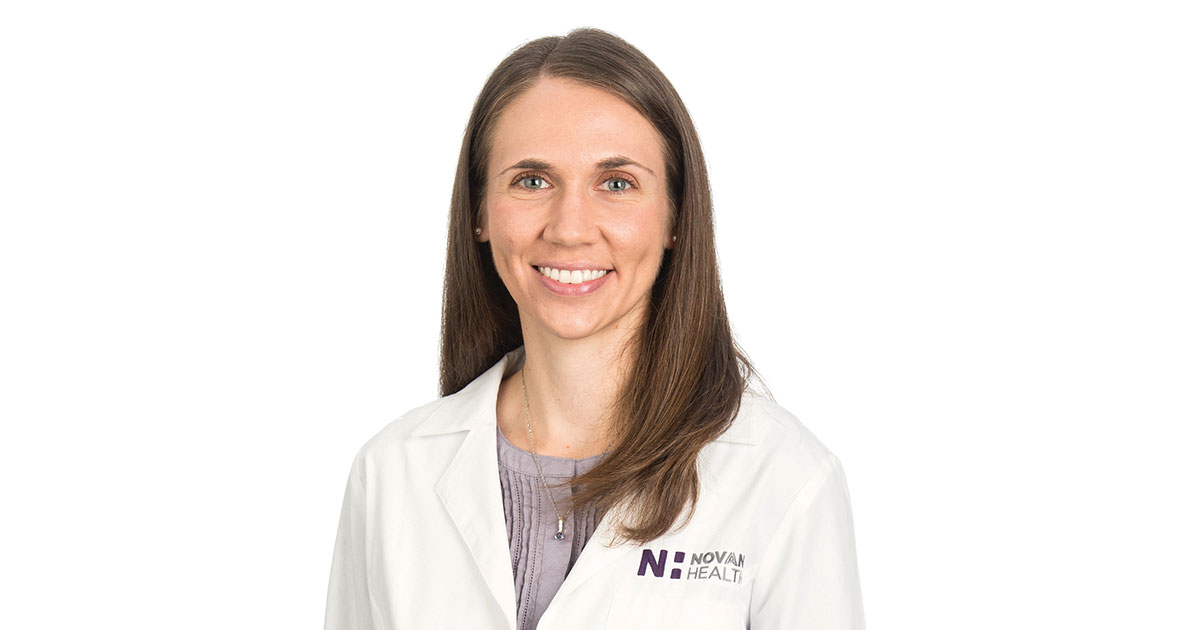Novant Health Vein Specialists: Varicose Veins and Pregnancy – What You Need To Know
Dr. Ashley Rickey explains why your risk of varicose veins increases during pregnancy and answers your questions.
If you are pregnant or are considering becoming pregnant, you probably have a number of questions you want to ask your doctors. One question Dr. Ashley Rickey of Novant Health Vein Specialists (NHVS) says she hears most frequently in her vein clinics is, “Do I risk getting varicose veins during my pregnancy?” Speaking as a varicose vein treatment specialist, Dr. Rickey says that her short answer to this question is “Yes.” But her complete answer is longer, and a mix of good news and bad news. Let’s find out more.
Women who don’t have varicose veins before they get pregnant have a 60%–70% chance of giving birth without developing them. But that leaves 30%–40% of women who do develop varicose veins during pregnancy. And if you get varicose veins during your first pregnancy, you are more likely to develop them again during later pregnancies. That’s the bad news.
The good news is that most varicose veins that develop during pregnancy go away naturally without any need for treatment, usually within three months of giving birth. Additional good news is that if you do get varicose veins, Dr. Rickey and the other vascular specialists at NHVS can treat them successfully, both during your pregnancy and after you give birth. In this article, we’ll answer a few of the questions we’re asked most often about this subject.
“What makes varicose veins more frequent during pregnancy?”
When you are pregnant, the volume of blood flowing through your veins increases. This puts more pressure on the walls of the veins, weakening them. Simultaneously, a flood of hormones in your bloodstream causes the already-weakened veins to expand. The weight of the baby also puts direct pressure on the vena cava (the largest vein in the body), and on the smaller veins it supplies in the legs, ankles, and feet. All of these factors increase your varicose vein risk.
“Are varicose veins dangerous, or merely unattractive?”
In most cases, varicose veins are not considered a medical danger. Negative symptoms associated with varicose veins during pregnancy are usually limited to muscle cramps or aching in the legs, swollen feet and ankles, itchy skin in the lower legs, and occasional bouts of Restless Leg Syndrome, a feeling of “creepy crawlies” in the legs.
“What can I do to lessen the symptoms of varicose veins?”
Dr. Rickey at NHVS starts by suggesting that you try not to sit or stand for long periods of time. Get up and walk around at least once an hour, and consider putting a small stool under your feet to elevate your legs.
Maintaining a healthy weight and getting enough regular exercise can help. So can wearing medical-grade compression stockings during the day to promote more healthy blood flow.
“Should I seek treatment if I develop varicose veins while pregnant?”
If you experience negative symptoms associated with the varicose veins, it’s a good idea to consult with a varicose vein expert in Winston-Salem or Kernersville like Dr. Rickey.
If you develop varicose veins and find that they don’t go away after you give birth, despite what you may have heard, you don’t have to wait until you are finished having children to think about vein removal. Having them removed may even help you prevent more varicose veins during future pregnancies.
So if you are pregnant or planning to become pregnant, and want to find out more about varicose veins, give the vein experts at Novant Health Vein Specialists a call at 336-276-0776 or schedule an appointment online at salemveins.com. Conveniently located at 2827 Lyndhurst Avenue, Suite 206 in Winston-Salem and 1710 Kernersville Medical Parkway, Suite 202 in Kernersville. Dr. Rickey would be happy to answer any additional questions you might have.


















